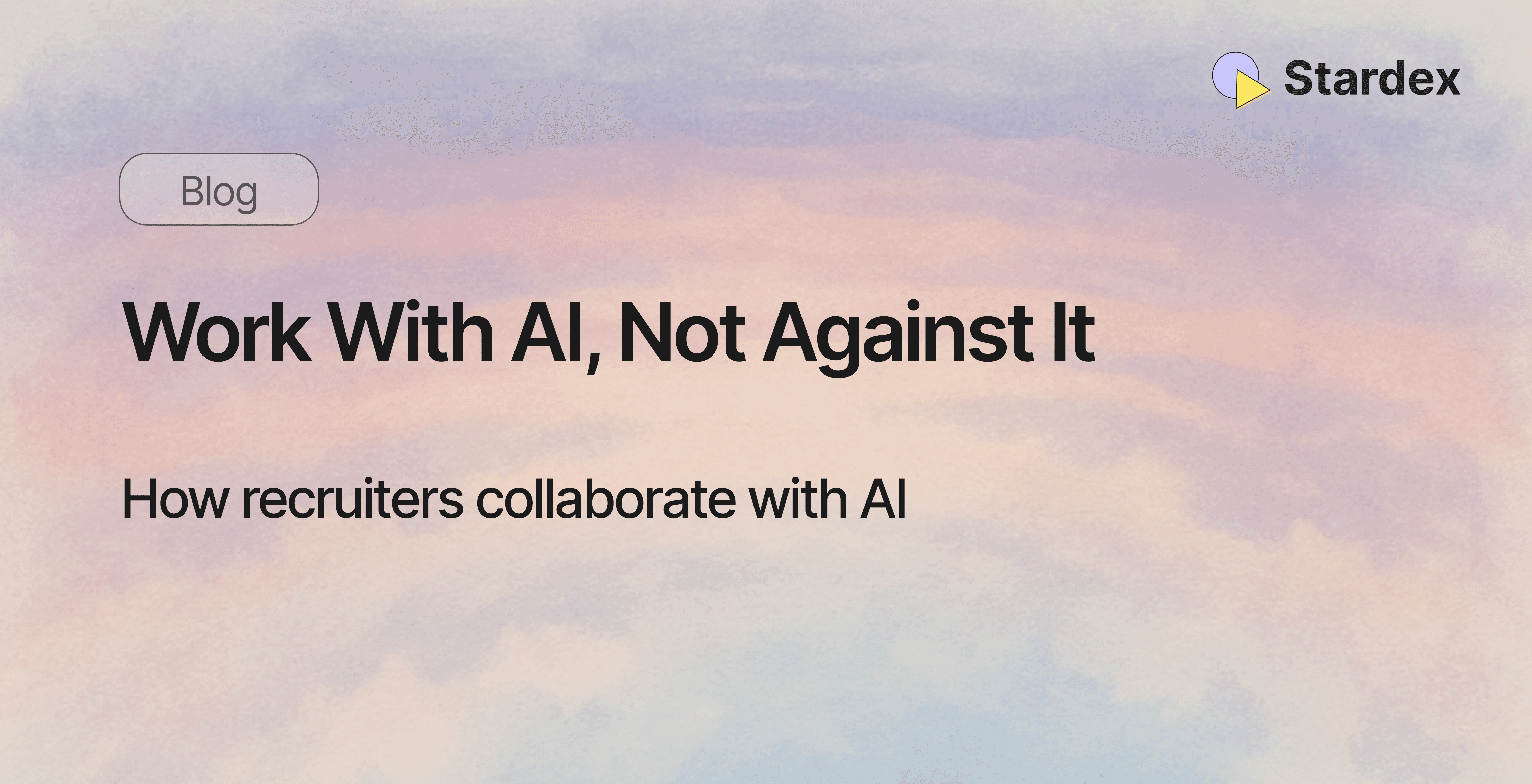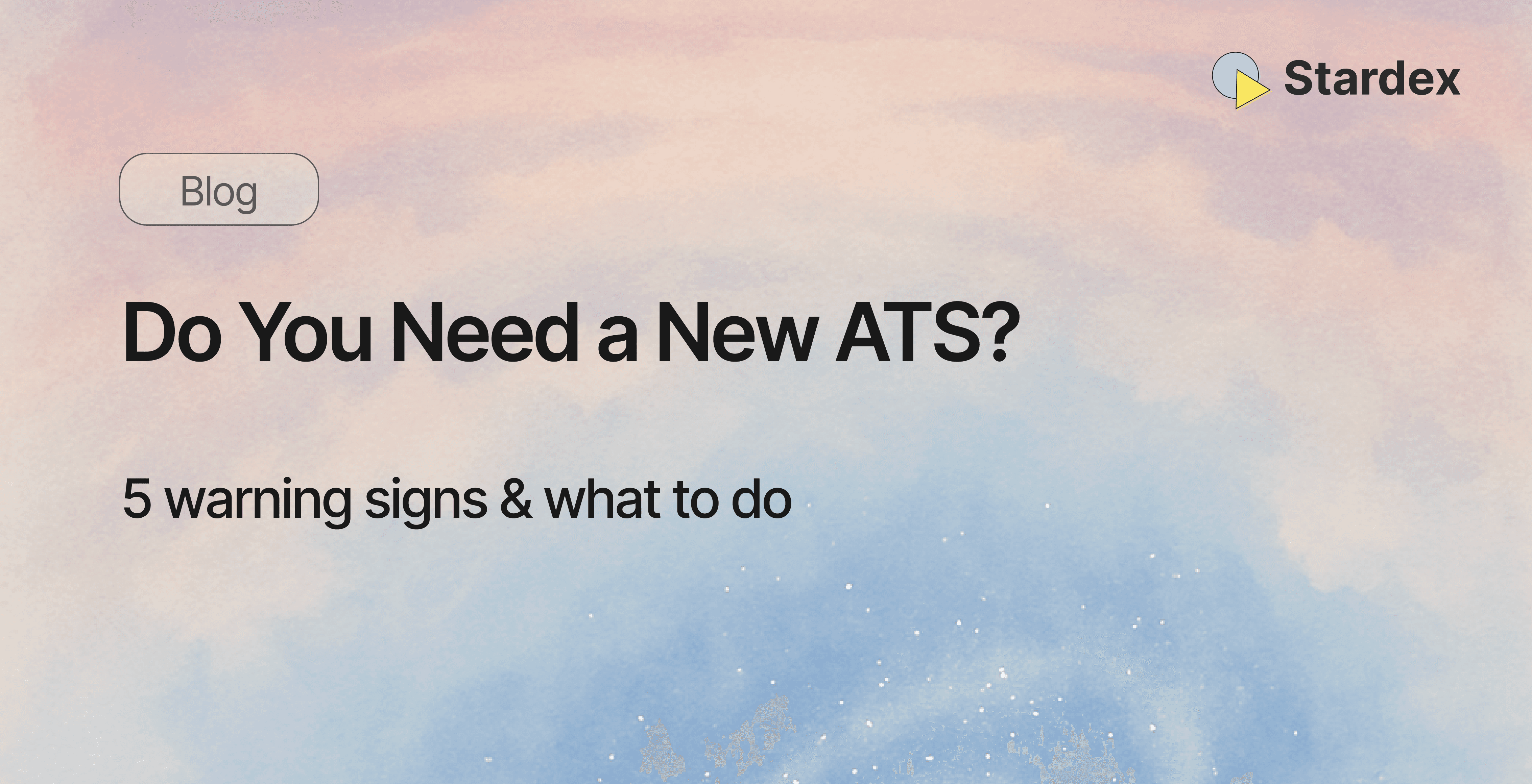Challenges Building Vector Search and Where Stardex AI Helps
Dec 12, 2025
Each search firm sits on a treasure trove of data from emails to notes, write-ups, and presentations. Yet most of it lives in static databases with only basic filters, and finding what you need can take forever.
AI recruiting tools now make it possible actually to act on this data. If your firm has a lot of information in a home-grown system, adding AI-powered search can unlock huge value. You could quickly answer questions like: Which marketing roles have we worked on at startups? Or, which operations candidates have been in more than two interviews? Leveraging your firm's database in this way enables your team to work more efficiently and achieve better results.
There are two ways to add search on top of your data: 1) buy a platform that does it, or 2) build your own system.
For search firms taking the latter route, we've outlined key challenges and shared how Stardex AI approached them so your team can use these insights as a reference.
Challenges building vector search, and where Stardex helps
We've seen firms attempt to build their own system, but get bogged down for months in search and engineering complexity - only to be unhappy with the outcome. Here's why:
Query evaluation is a black box problem.
Vector search operates on semantic similarity rather than exact matching, so understanding why specific results rank higher is opaque. Testing your users' queries against your internal data requires trial and error. For example, a recruiter searches for "healthcare CFO," but your system returns a hospital administrator because they mention having spent a lot of time with the CFO. You need extensive testing to catch these edge cases, but building evaluation pipelines and ground truth datasets takes significant time.
The Stardex team has invested thousands of hours in building AI evaluations and test datasets to enhance search across our 40+ executive search customers. You are benefiting from this infrastructure and domain expertise.
Vector search is fuzzy.
AI search is not precise. Getting good results is not as simple as running a query against your vector data. Vector search is a fuzzy semantic search, and you'll find irrelevant results at the top because they have more data and mention certain words more times, for example.
Stardex features a battle-tested reranker that optimizes the top results for you, refined through thousands of searches. A reranker is a fast AI model that takes the initial vector search results and reorders them based on more sophisticated relevance scoring. Vector search often yields false positives; for example, searching for "SaaS CFO" might return a controller who frequently mentions "CFO" in their notes. A reranker evaluates each result more deeply against the actual query to push truly relevant candidates to the top.
Nuanced criteria require post-retrieval evaluation.
Your users care about nuanced criteria and may search for terms like "VP of Sales at Series B SaaS company, $50-$100M revenue." There are actually four criteria here: VP of Sales, SaaS experience, Series B funding, and revenue generated. Vector search may surface 50 VPs of Sales in the right ballpark, but it's not going to find the five bullseye profiles for you. You can solve that by evaluating each profile with an LLM, but what starts as "just call the LLM on each profile" becomes a complex orchestration infrastructure (managing LLM rate limits, handling failures, storing results, etc.)
After surfacing relevant candidates through vector retrieval, Stardex conducts a research evaluation on each profile. We do this in a parallelized architecture that leverages state-of-the-art LLMs. We then store all of these evaluations so that your team can easily refer back to their in-depth research later.
Context engineering is required to inform the AI model.
You shouldn't rely on models to know everything. For detailed criteria, such as funding history and revenue, AI models will have very poor recall. You need to provide the relevant context for the candidate's work history without overloading it with unnecessary details.
Stardex is adding relevant context to a candidate beyond what's just on their profile. For each company a candidate has worked at, Stardex enriches that company's data by pulling funding history, revenue, headcount trends, vertical focus, and other relevant information that may be pertinent to the query. This context is passed to the AI model for better evaluations.
Data sync gets complicated fast.
Keeping your vector data in sync with your internal database is hard. Syncing notes, updating records when candidates move in the pipeline, or syncing emails (if your system doesn't already do that) all require additional code to maintain. Note that document data must also be parsed and stored in the vector index. You'll have to figure this all out.
Stardex has durable background processes to keep our vector database in sync when new notes or documents get added, as well as when candidates are moved through the pipeline. You won't have to think about database triggers and cron jobs.
Your firm's preferences need to be taken into account.
Storing search criteria seems simple until partners have conflicting preferences, successful patterns get buried in noise, and you're managing hundreds of duplicate criteria that mean the same thing. Building a system that extracts meaningful patterns, resolves conflicts, and surfaces the proper institutional knowledge contextually requires significant engineering.
Stardex's "Firm Memories" stores your high-usage search criteria and key preferences, making them accessible via API so that you can apply institutional knowledge to your searches.
Coming soon in the Deep Research Agent
The work doesn't end once you've implemented search on top of your data! Your team will have numerous additional workflows where they'll want the system to surface candidates for them proactively. That's the direction Stardex is building with the Deep Research Agent. Here's a sneak peek:
Similar profiles - Send the Deep Research Agent a profile from your database, and it will identify similar profiles within your database based on nuanced similarities, such as funding stages, vertical experience, and other relevant details.
Advanced firm memory - Automatic pattern extraction from search history, intelligent conflict resolution when partners have different preferences, and contextual surfacing of relevant institutional knowledge based on search type
Recommendations from a job description - Pass in a job description or transcript from a client-intake call. Stardex will automatically surface and evaluate relevant candidates.
Search over previous jobs - On a call and need to quickly find similar searches your firm has run in the past? The Deep Research Agent will soon be able to search over job data, not just candidate data.
Book a demo now to see how Stardex AI can power your next great hire.




